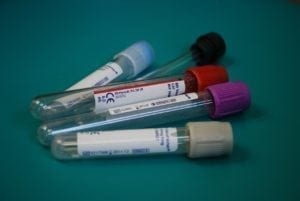Schnitzler Syndrome
What is Schnitzler syndrome?
Schnitzler syndrome is a rare autoinflammatory disorder characterized by a chronic reddish rash and elevated levels of a specific protein in the blood called monoclonal IgM gammopathy.What are the symptoms of Schnitzler syndrome?
A reddish rash (urticaria) is the hallmark symptom of Schnitzler syndrome and is usually the first symptom to show. Other symptoms include:- Red raised patches of skin (urticaria) that may become itchy
- Recurrent fevers
- Join pain and inflammation
- Organomegaly (enlarged internal organs) often involving the lymph nodes, liver and/or spleen
- Bone pain
- Blood abnormalities
- Muscle aches
- Fatigue
- Weight loss
What causes Schnitzler syndrome?
The exact cause of Schnitzler syndrome is unknown. Researchers believe that specific parts of the immune system may not function properly, which then eventually causes Schnitzler syndrome. Those affected by Schnitzler’s often have a blood abnormality called monoclonal gammopathy, a condition in which the body over-produces certain immunoglobulins (typically immunoglobulin M). Immunoglobulins are proteins that are made by certain white blood cells and play a role in the immune response by helping destroy bacteria, viruses, and other harmful substances.How is Schnitzler syndrome diagnosed?
A diagnosis of Schnitzler syndrome is based upon a thorough clinical evaluation, a detailed patient history, and identification of characteristic symptoms, specifically a urticarial rash, an IgM component and at least two of the following findings – fever, joint pain or inflammation, bone pain, palpable lymph nodes, enlargement of the liver or spleen, elevated numbers of white blood cells (leukocytosis), elevated red blood cell (erythrocyte) sedimentation rate or abnormalities on bone morphological study, which can reveal increased bone density (osteosclerosis).What are the available treatments for Schnitzler syndrome?
Treatment is aimed at alleviating the signs and symptoms of Schnitzler syndrome, including:- Nonsteroidal anti-inflammatory drugs (NSAIDs)
- Corticosteroids
- Immunosuppressive agents
- Interleukin-1 receptor antagonists (medications that inhibit the cytokine IL-1)
- Colchicine
- Dapsone
- Thalidomide
- Rituximab
Where can I find out more about Schnitzler syndrome?
Schnitzler Syndrome Articles


Drug Label Expanded in the UK for Treating Rare Inflammatory Diseases
James Moore
August 10, 2018
Read More »







